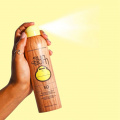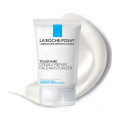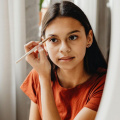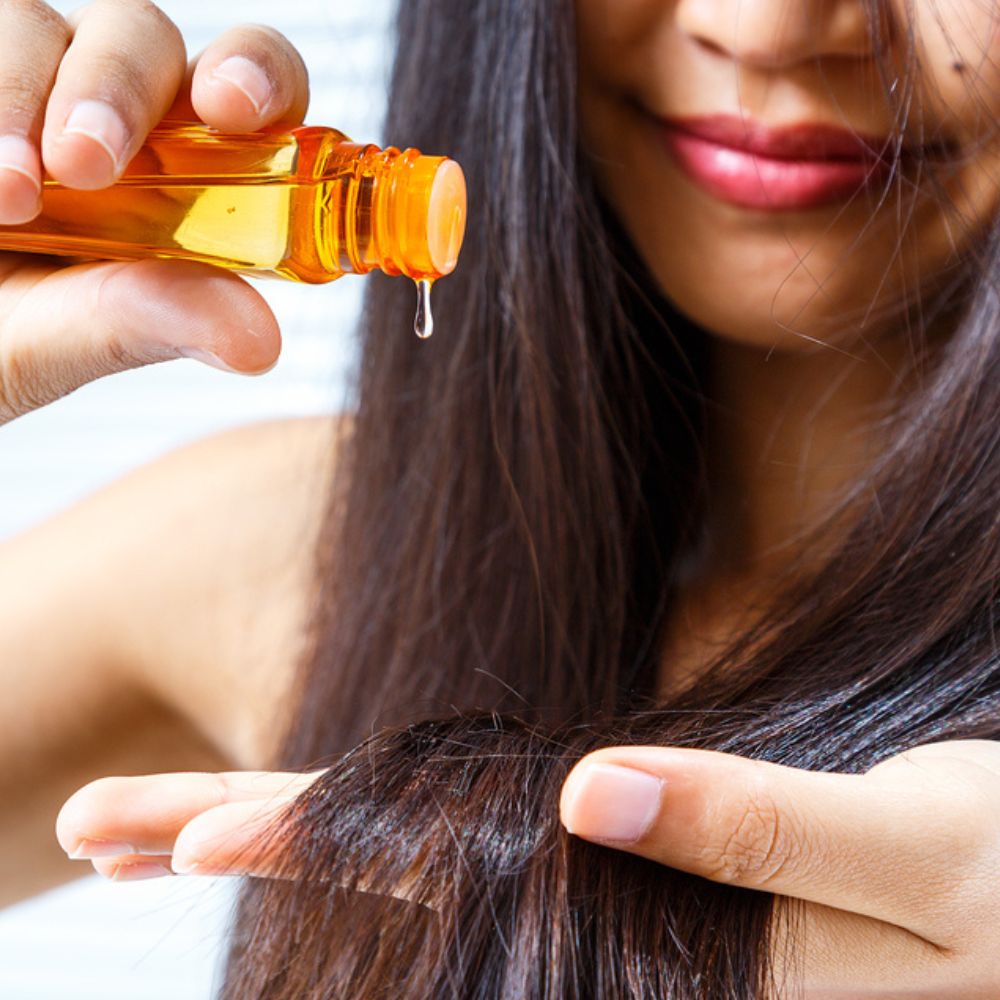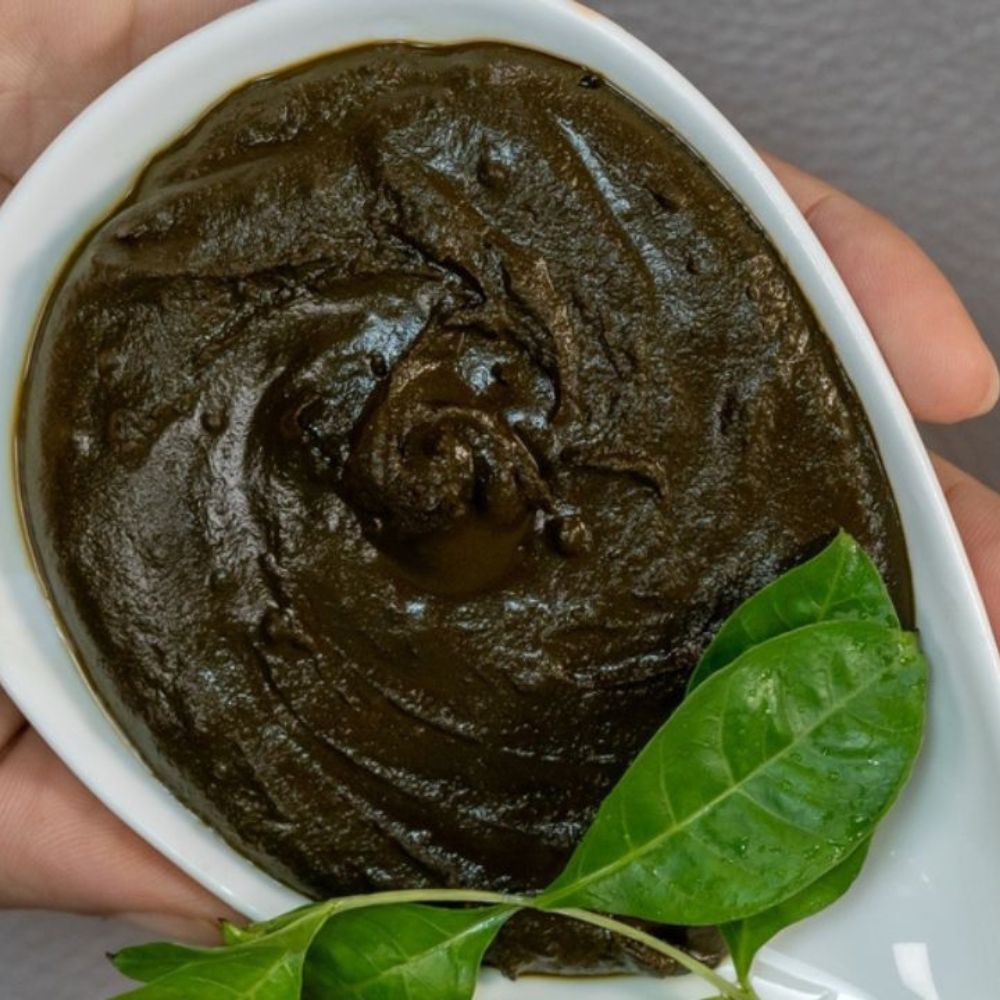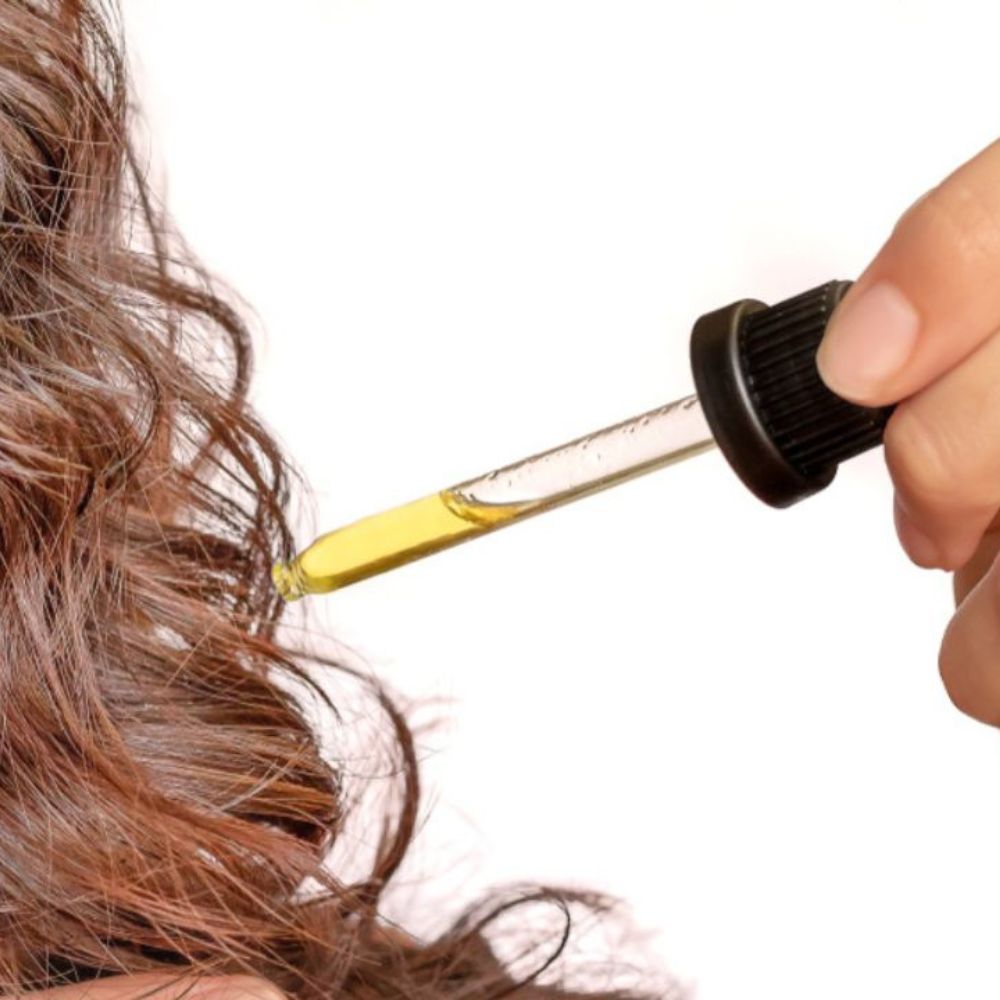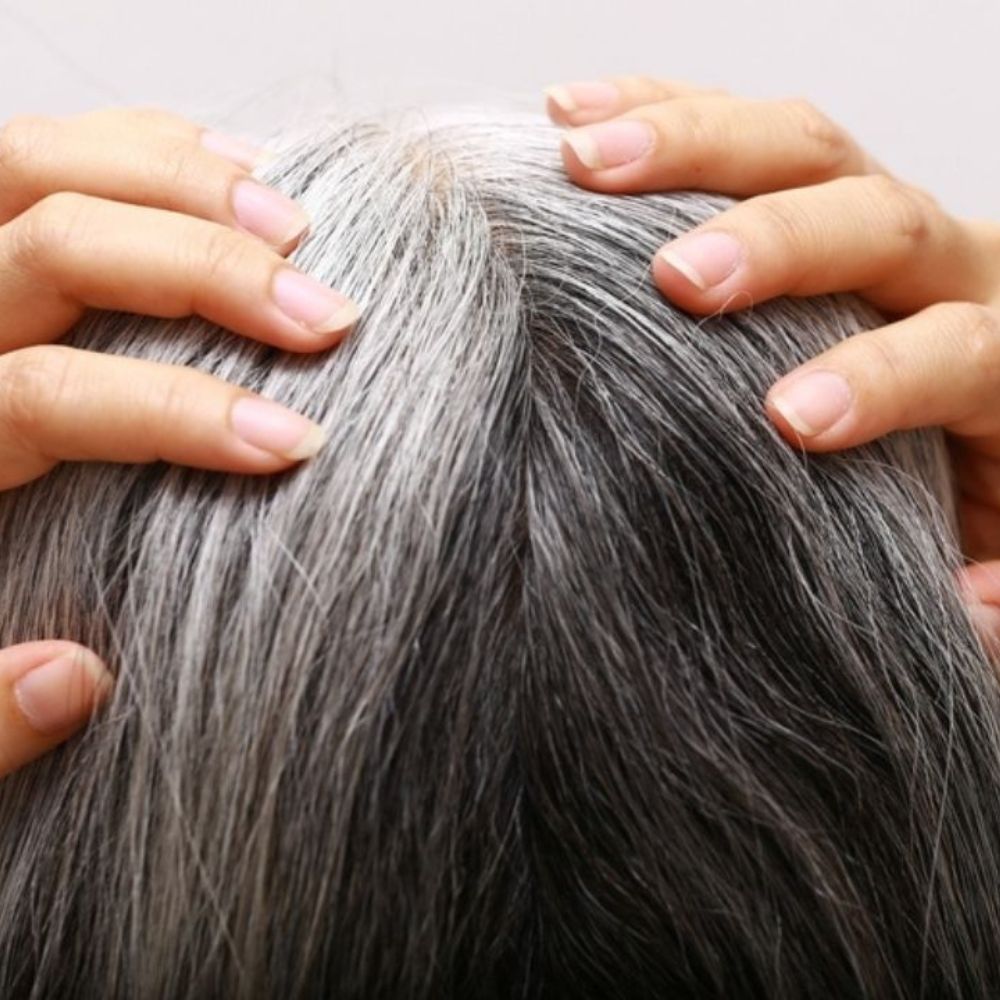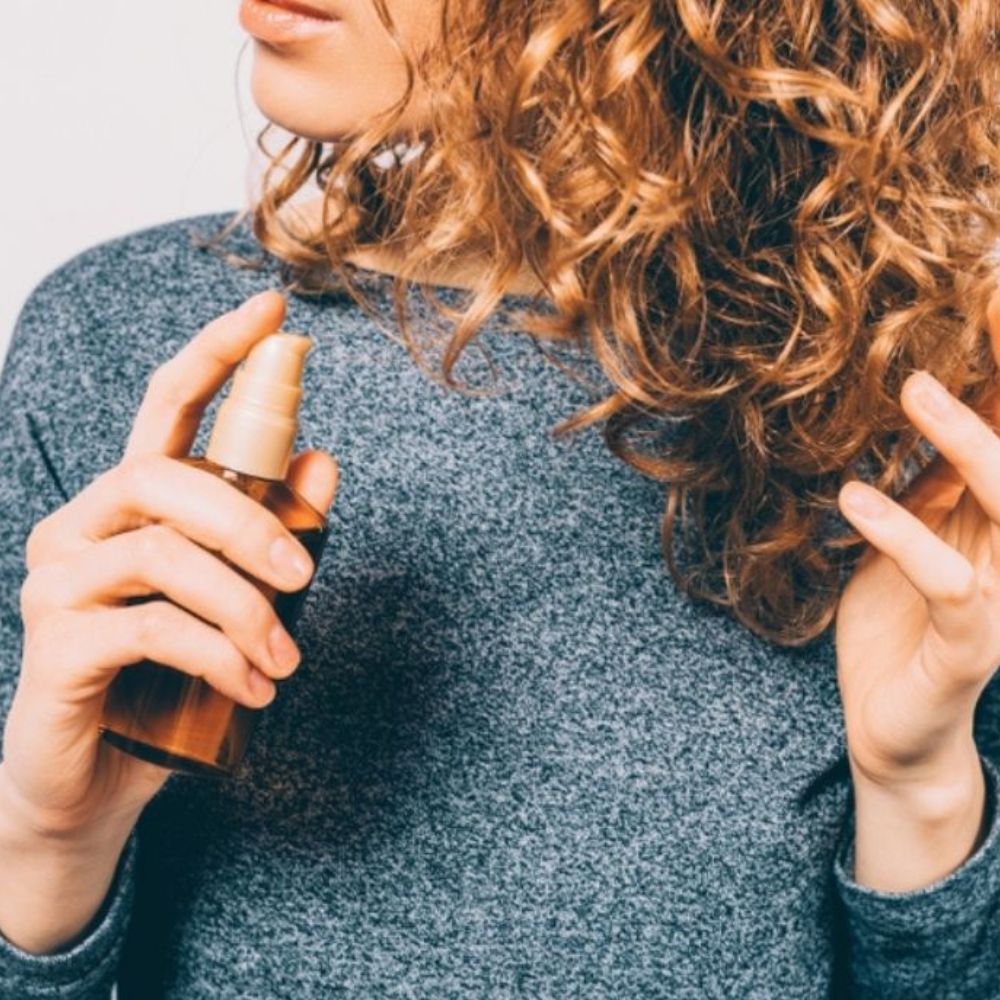Is the Sun Good for Your Hair: Making a Case for the Sunshine Vitamin
Sunshine helps make vitamin D, which is essential for hair health. But sun exposure is known to damage hair. So, is the sun good for your hair or not? Let’s find out.

By now, we have been thoroughly educated on how prolonged sun exposure damages the skin — so much so that wide-brimmed hats, scarves, sunglasses (of course), and sunscreens have become all necessary accessories and accompaniments whenever we venture outdoors. But all that covering up may mean that you are missing out on some great sun benefits for hair, most importantly, in the context of vitamin D supply. Vitamin D deficiency is all too common and impacts hair growth and maintenance, amongst other things. This begs the question, is the sun good for your hair?
The answer is not a clear yes or no — prolonged exposure to direct sunlight has been proven to cause hair damage, including roughness, split ends, and loss of hair color, even for darker hair. On the flip side, early morning and evening sun exposure may help promote hair growth and health. So, there are caveats, as with all else in life.
Let's dig deeper and understand why and how (much) basking in sunlight can be a treat for your mane.
What Effect Can Sun Exposure Have on Your Hair?

Prolonged or excessive sun exposure, i.e., to the ultraviolet rays of the sun, namely UVA and UVB, can damage hair protein (keratin) and pigments in hair (melanin), respectively. This broadly means that UVA exposure can damage the structure and integrity of hair strands, while UVB exposure can strip the hair of melanin and lead to graying of hair and loss of color vibrance (1).
However, in measured doses of exposure, sunlight can brighten your tresses with natural highlights and supply a good dose of vitamin D.
The most commonly discussed benefit that you derive from being outdoors, basking in the warmth of the sun, lies in the production of the sunshine vitamin, vitamin D, in the layers of the skin (and scalp, by extension). Most cases of vitamin D deficiency occur due to insufficient sun exposure (2). Vitamin D deficiency has been linked with hair loss disorders, including alopecia areata (3).
What’s worth noting is that there is yet to be any clear evidence found for the benefit of administering vitamin D to reverse or treat hair loss and there are risks of vitamin D poisoning if taken in excess — all of which make a pretty compelling case for natural sun exposure as the body can make vitamin D (vitamin D3 to be precise) from UVB rays in quantities that it can stand and use without risk of overdose (4).
Let’s delve deeper into how vitamin D photosynthesized in the presence of sunlight can help your hair health, along with some other lesser-discussed benefits of sun for the hair.
Why Is the Sun Good for Your Hair: Benefits of Sunlight for Hair Growth

Being in the sun can boost hair growth and maintain hair health. Here’s what soaking up the sun may do for you:
- Promotes And Supports Hair Follicle Growth
Research suggests that hair follicle cycling is affected by the availability of vitamin D and calcium in tandem (5). So, not only does hair follicle growth require a healthy supply of vitamin D in the body, but also other nutrients that it affects — vitamin D is integral to the absorption and bioavailability of certain nutrients, namely, calcium and phosphorous (2).
Calcium is involved in an array of physiological processes, which in the context of hair growth, includes cell signaling, and the regulation of hormones and enzymes influencing hair follicle formation and cycling.
As one of the most natural and primary sources of vitamin D, sunlight can be considered crucial for healthy hair follicle growth and maintenance.
- May Boost Iron Levels in Hair
Vitamin D deficiency has been found to increase the risk of iron deficiency and boosting the production of vitamin D through sun exposure may help elevate levels of iron in the blood (6).
Iron is a lesser-discussed mineral when it comes to hair health, but research suggests that iron deficiency may be linked with alopecia areata, telogen effluvium, androgenetic alopecia, and diffuse hair loss — all different hair disorders characterized by loss of hair.
While there is inconclusive evidence regarding the relationship between iron deficiency and hair loss, studies have shown that hair loss treatments have been more effective when underlying iron deficiency has been treated in patients with anemia (7).
Iron also participates in the renewal of cells, transportation of oxygen, and the production of collagen — functions that help make hair elastic, strong, shiny, and smooth.
- May Prevent Fungal Infections on the Scalp
Sunlight may inhibit the growth of fungal infections on the scalp, including dandruff. Not only does anecdotal evidence suggest that symptoms of dandruff improve in the summer months (albeit in places with low humidity), but there is also evidence to suggest that sun exposure destroys fungal cells and prevents them from taking over (8).
Dandruff and other fungal infections may lead to hair loss due to oxidative stress and/or damage to hair follicles from itching (9). So, a little time outdoors can do wonders for scalp health and in turn, hair health.
- Boosts Circulation And Improves Nutrient Absorption
Exposure to sunlight, more precisely UVA, can help in improved blood circulation due to vasodilation, amongst other things (10). This not only means better cardiovascular health, but also better transportation and absorption of nutrients for your scalp and hair, leading to improved hair quality (11), (12).
- Helps Reduce Stress And Lower Risk of Hair Loss
Stress is not only bad for general health and wellbeing but also terrible for hair. Research suggests that stress can be a leading contributor to hair loss and related disorders such as alopecia areata (13). Sunlight, fortunately, is an easy remedy to improve sleep, boost mood, and lower levels of perceived stress, as research has found (14).
Exposure to the early morning sun can, in more ways than one, improve hair health. However, it is crucial to remember the risks associated with overexposure — because if done too much, it can damage hair instead of helping it. So, let’s take note of the potential dangers as it's best to err on the side of caution.
Potential Risks of Hair Damage from Sun Exposure

Staying in the sun for long hours, especially at midday, when your shadow on the ground is the shortest, may have adverse effects on your hair due to the impact of UV rays. Here are the negative impacts of prolonged sun exposure on hair (3):
- Increased free radical damage to hair strands
- Hair dryness from stripping of natural oils and moisture from the hair and scalp
- Weakened structural bonds in hair, which makes hair brittle and prone to breakage
- Scalp dryness and flaking
- Degradation of melanin (the pigment that imparts hair color), leading to premature graying of hair
- Increased risk of split ends and frizz
In a nutshell, excess or unprotected exposure to sunlight can make hair dry, damage the cuticle layer, and lead to brittle hair strands and frizzy hair.
To balance out the risks and benefits of being outdoors in the sun, it is essential to know when to enjoy the sunlight and when to find ways to shield against it. The first few hours after sunrise is when UVB rays are at their highest. UVB is responsible for most of the benefits, including the increase in vitamin D levels in the skin. That is when the sun is good for your hair. Therefore, it is recommended to spend time outdoors in the early mornings and close to the time of sunset if you want to minimize the risks of UV damage and maximize the benefits of sunbathing. Anywhere between 10-30 minutes of early morning sun exposure is considered good for health, including hair health (15).
At all other times, slather on haircare products like sunscreens, including sunscreens for hair and scalp, and wear protective clothing and accessories to keep your skin safe and healthy.
Speaking of sunscreens, our contributor Gwenda Harmon, a hair dresser & curly hair specialist, says, “Sunscreen for hair exists but it isn't a well-known product for people. It is important to use it to protect the hair and scalp from excess sun exposure.”
Research suggests that wearing an SPF 15 formulation with high UVA protection can still enable vitamin D synthesis while preventing sunburn and UV damage (16). So be sun smart and enjoy the sunshine for your hair and health!
Contributor: Gwenda Harmon, Hair Dresser & Curly Hair Specialist - Click for blog
ALSO READ: Henna Hair Dye for Gray Hair: Benefits And Ways to Use





 JOIN OUR WHATSAPP CHANNEL
JOIN OUR WHATSAPP CHANNEL





































